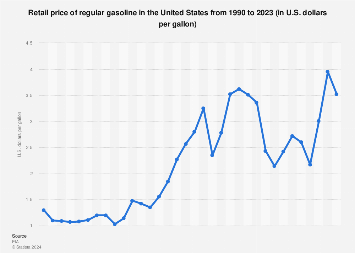Long Island's Finest Kept Secret: COD Oil Prices for Effective Home Heating
Wiki Article
Analyzing the Variables Affecting Oil Cost and Its Impacts on Fuel Oil
Comprehending the aspects that influence oil prices and their succeeding results on fuel oil is important for businesses and individuals alike. In addition, it will check out exactly how adjustments in oil prices impact fuel oil expenses, which, in turn, have substantial implications for various industries such as manufacturing, energy, and transportation production.Supply and Demand Dynamics
Supply and demand dynamics play an essential function in establishing the rate of oil and its influence on the gas oil market. The worldwide oil market is affected by different aspects, consisting of geopolitical occasions, economic conditions, and technological developments. Understanding the dynamics of supply and demand is important for stakeholders in the fuel oil industry to properly anticipate oil rates and make notified service decisions.
The supply of oil is identified by the production capacities of oil-producing nations, consisting of OPEC members, non-OPEC nations, and shale oil producers (cod oil prices). Political instability in oil-producing areas, natural catastrophes, and conflicts can interrupt the supply of oil, leading to cost fluctuations. On the other hand, technical developments and raised investments in expedition and production can increase supply and maintain prices
Demand for oil is affected by economic variables such as GDP growth, commercial task, and transportation requirements. Arising economic climates with swiftly growing markets and raising urbanization add to the rising demand for oil. Aspects like power change policies, advancements in sustainable power resources, and performance improvements can influence oil need negatively.
Changes in oil costs have a cascading impact on the gas oil market, affecting production prices, success, and consumer habits. Stakeholders in the fuel oil sector closely keep track of supply and demand characteristics to prepare for price movements and adjust their strategies appropriately.
Geopolitical Influences
Geopolitical elements dramatically impact the global oil market and consequently influence the price of oil and its results on the gas oil market. Any type of interruption in oil supply from the Middle East due to political instability or disputes can trigger a significant rise in oil prices. Overall, understanding and analyzing geopolitical impacts is essential for anticipating oil rate movements and their results on the gas oil industry.Market Speculation
Market conjecture plays a significant role in forming the characteristics of the oil price and its effect on the gas oil sector. Conjecture describes the activity of buying and selling oil agreements with the expectation of making profits from price fluctuations. Investors, capitalists, and banks take part in market supposition to benefit from short-term cost motions. Their actions, affected by various elements such as economic signs, geopolitical occasions, and supply and demand dynamics, can contribute to enhanced volatility in the oil market.Market conjecture can have both favorable and adverse results on the gas oil sector. On one hand, it can give liquidity and performance to the market by assisting in cost discovery and danger administration. Speculators bring added capital and expertise, boosting market deepness and permitting smoother transactions. This can profit gas oil producers and consumers by offering a much more clear and steady rates device.
On the various other hand, extreme conjecture can bring about cost distortions and market manipulation. Speculative tasks driven by herd mindset or unreasonable enthusiasm can cause costs to differ their fundamental values. This can cause enhanced cost volatility, making it challenging for fuel oil industry participants to plan and make educated decisions. Too much supposition can produce synthetic rate bubbles, which, when they rupture, can have serious repercussions for the fuel oil industry and the broader economy.
Impact on Gas Oil Rates
The influence of market speculation on gas oil rates can be considerable. Market speculation refers to the trading of fuel oil agreements based on anticipated rate motions, as opposed to on the real physical supply and need of the commodity. Speculators, such as hedge funds go to this site and financial investment financial institutions, play a vital function in determining gas oil prices as they take part in futures trading, which can affect the overall market view and costs.When speculators believe that gas oil prices will certainly enhance, they tend to get contracts, increasing the demand and consequently the cost of gas oil. On the various other hand, when speculators expect a decline in costs, they market contracts, leading to a reduction popular and consequently lower fuel oil rates.
The effect of market supposition on fuel oil rates can be both negative and positive. On one hand, it can give liquidity and help maintain the market by enabling manufacturers and consumers to hedge against cost fluctuations. On the other hand, excessive speculation can cause cost volatility and distortions, which can have adverse impacts on gas oil prices and the general economic situation.
It is essential for policymakers and market regulatory authorities to take care of and monitor market conjecture to make certain that it does not become excessive and destabilize her explanation gas oil rates. By implementing effective guidelines and oversight, authorities can minimize the potential negative impacts of market conjecture and preserve security in gas oil rates.
Effects on Industries and Consumers
When oil rates increase, markets that depend heavily on gas oil for their operations, such as production, agriculture, and transportation, experience raised production costs. Increasing fuel oil rates can result in enhanced transport prices, leading to higher rates for goods that require to be carried long ranges.Moreover, greater fuel oil rates can also impact customer behavior. As the price of fuel increases, customers may have to allot more of their budget plan in the direction of transportation expenditures, leaving much less money for various other acquisitions. This can result in a reduction in optional spending and a downturn in consumer-driven sectors such as retail and hospitality.
On the other hand, when gas oil rates decline, industries might profit from reduced production expenses, causing possible savings that can be passed on to customers. cheap oil prices long island. Reduced gas rates can also promote consumer costs, as people have extra disposable income to assign in the direction of other goods and services
Final Thought
Finally, the rate of oil is affected by numerous factors such as supply and demand dynamics, geopolitical influences, and market speculation. These elements have considerable impacts on fuel oil costs, which consequently effect different markets and consumers. Comprehending these influences is crucial for organizations, policymakers, and consumers to browse the changes in oil rates and reduce their impacts on the economic climate.
Market speculation plays a significant role in shaping the dynamics of the oil price and its impact on the fuel oil sector. When oil rates climb, sectors that count greatly on gas oil for their procedures, such as farming, transportation, and manufacturing, experience boosted manufacturing expenses.
Report this wiki page